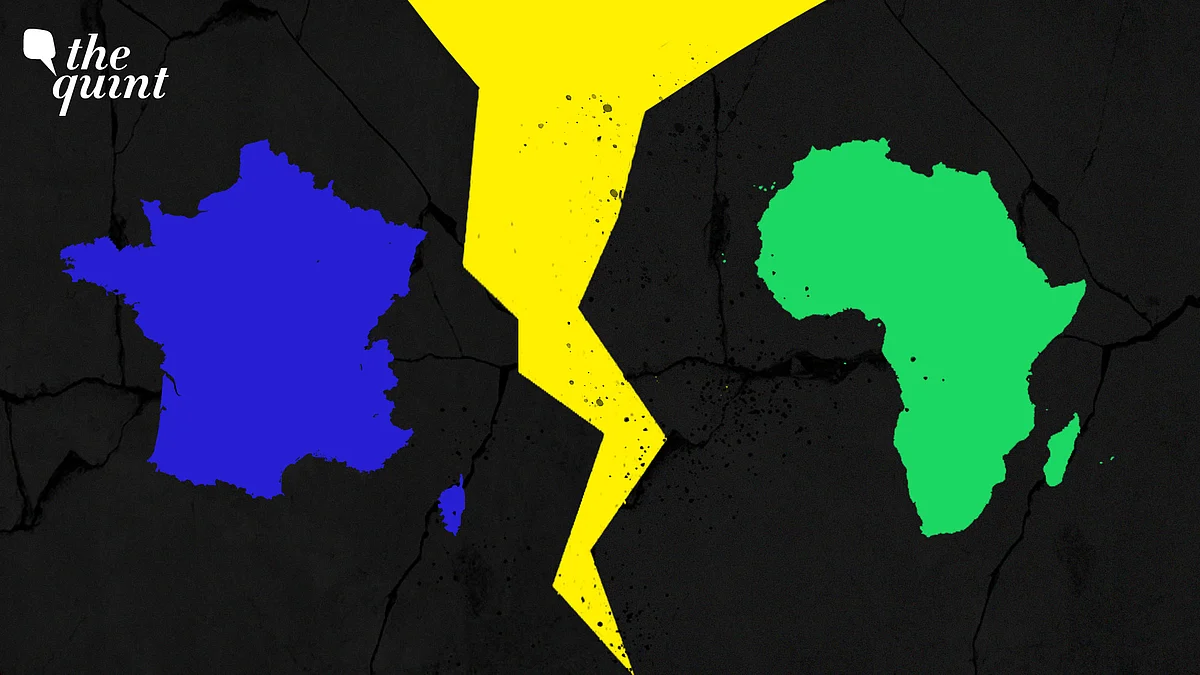
Farewell, Françafrique: West Africa’s Rising Defiance Against French Hegemony
The era of West Africa’s subjugation to French interests appears to be drawing to a close, writes Akhil Bakshi

advertisement
A transformative wave of change is sweeping through West Africa. Once tethered to France by historical, economic, and political ties, the region is now boldly asserting its independence.
Recent moves by President Alassane Ouattara of Ivory Coast, who demanded the withdrawal of 600 French troops, and Senegal's President Bassirou Dioumaye Faye, who declared an end to France's military presence by 2025, mark significant milestones in this growing revolt against French influence.
The sentiment driving this defiance is not new. Just over a year ago, I embarked on The Great West African Safari, a five-week journey through eleven West African nations.
Colonial Legacies That Linger
France's colonial venture in West Africa began during the notorious "Scramble for Africa" in the late 19th century. Territories such as Senegal, Mali, Burkina Faso, Guinea, Côte d'Ivoire, Niger, Benin, and Togo were brought under French dominion. The colonial administration was designed not to uplift these regions but to extract their wealth with minimal investment in infrastructure or human development.
West Africa, rich in resources such as gold, bauxite, uranium, and oil, became a wellspring of raw materials for France. Even after gaining formal independence in the 1960s, many key industries remained under the control of French multinational corporations ensuring a steady flow of profits back to France. Environmental degradation and poverty became the enduring legacies of this resource plundering.
Grip of the Franc, Trade Imbalances
One of France's most enduring tools of economic control is the CFA franc currency system, established in 1945. Still in use by 14 African countries, it ties their economies to the French Treasury and the euro, leaving them with limited financial autonomy.
Crossing the Gambia River from Banjul to Barra, a school teacher from Niger shared how his country's uranium, essential for France's nuclear power, was purchased at a fraction of its international value.
This unequal trade relationship persists, with French corporations dominating sectors like telecommunications, energy, and retail.
Military Presence Under Fire
In Sierra Leone, I arrived just five days after a failed military coup. A telecom engineer in Freetown confided, "These coups often aim to overthrow puppet leaders installed by France, though Western media portrays them differently."
France's influence in West Africa has long extended beyond economics. Through the infamous "Françafrique" network, it meddled in political affairs, backing authoritarian leaders who safeguarded French interests. Figures such as Félix Houphouët-Boigny of Ivory Coast, Blaise Compaoré of Burkina Faso, Idriss Déby of Chad, Omar Bongo of Gabon, Gnassingbé Eyadéma of Togo, and Paul Biya of Cameroon were propped up despite allegations of human rights abuses and corruption.
The backlash has grown louder, with leaders like Mali's Assimi Goïta and Burkina Faso's Ibrahim Traoré seeking expulsion of French troops and seeking alliances with Russia and China. Protests against the CFA franc and French military presence have become increasingly common.
Winds of Change
West Africa is charting a new course. The Economic Community of West African States (ECOWAS) is pushing for a unified currency, the "Eco," to replace the CFA franc. Despite French resistance, the momentum for change is undeniable.
The era of West Africa’s subjugation to French interests appears to be drawing to a close. This is not just a farewell to France's overreach - it's a bold step toward a more equitable and empowered West Africa. Here's to a well-deserved goodbye and a promising new beginning.
(Akhil Bakshi, an author and explorer, is a Fellow of the Royal Geographical Society and Explorers Club USA, and Editor of ‘Indian Mountaineer’. He is also the founder of Bharatiya Yuva Shakti, an organisation that ensures good leadership at the village level. He tweets @AkhilBakshi1. This is an opinion piece, and the views expressed above are the author’s own. The Quint neither endorses nor is responsible for the same.)
- Access to all paywalled content on site
- Ad-free experience across The Quint
- Early previews of our Special Projects
Published: undefined